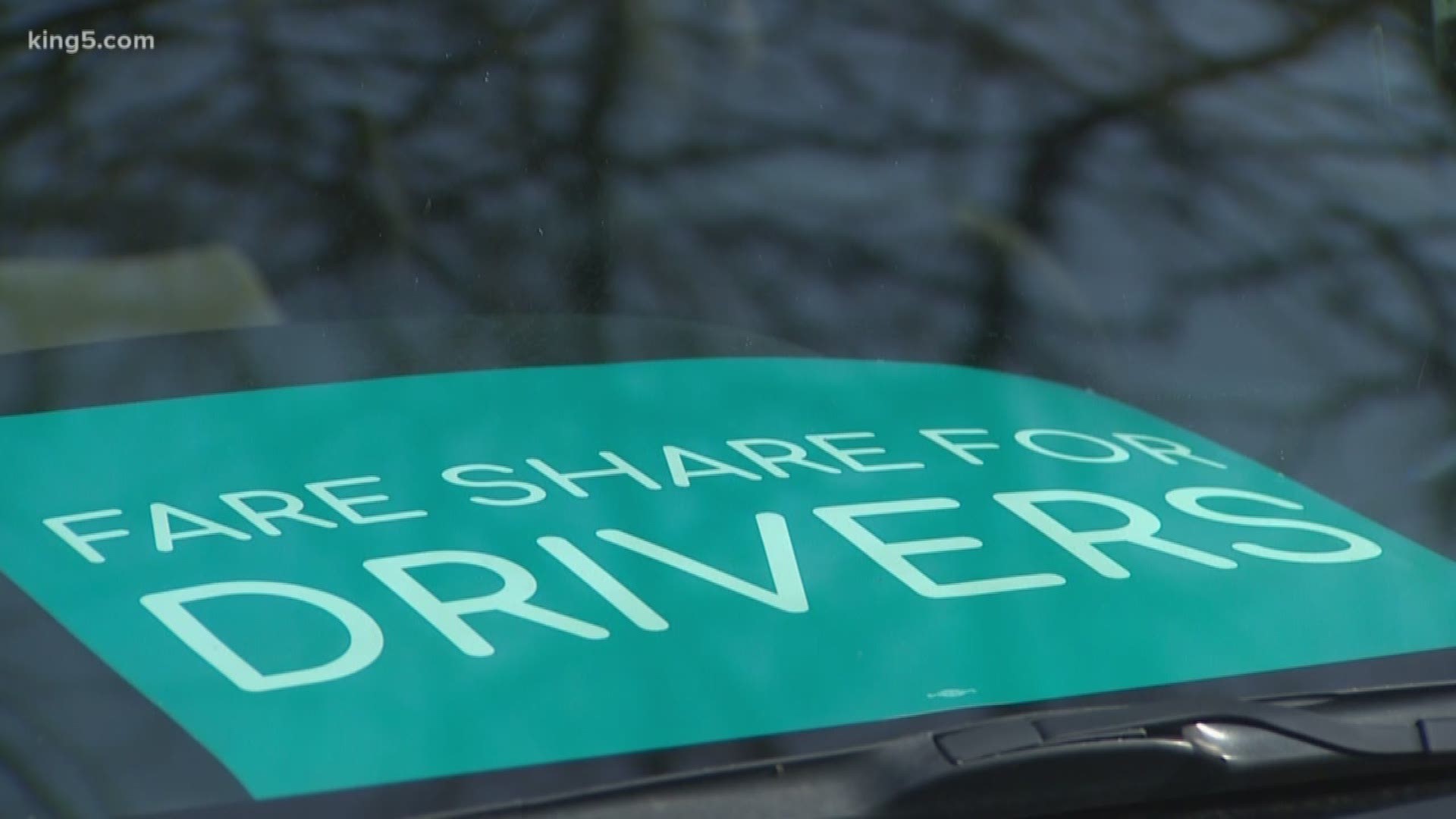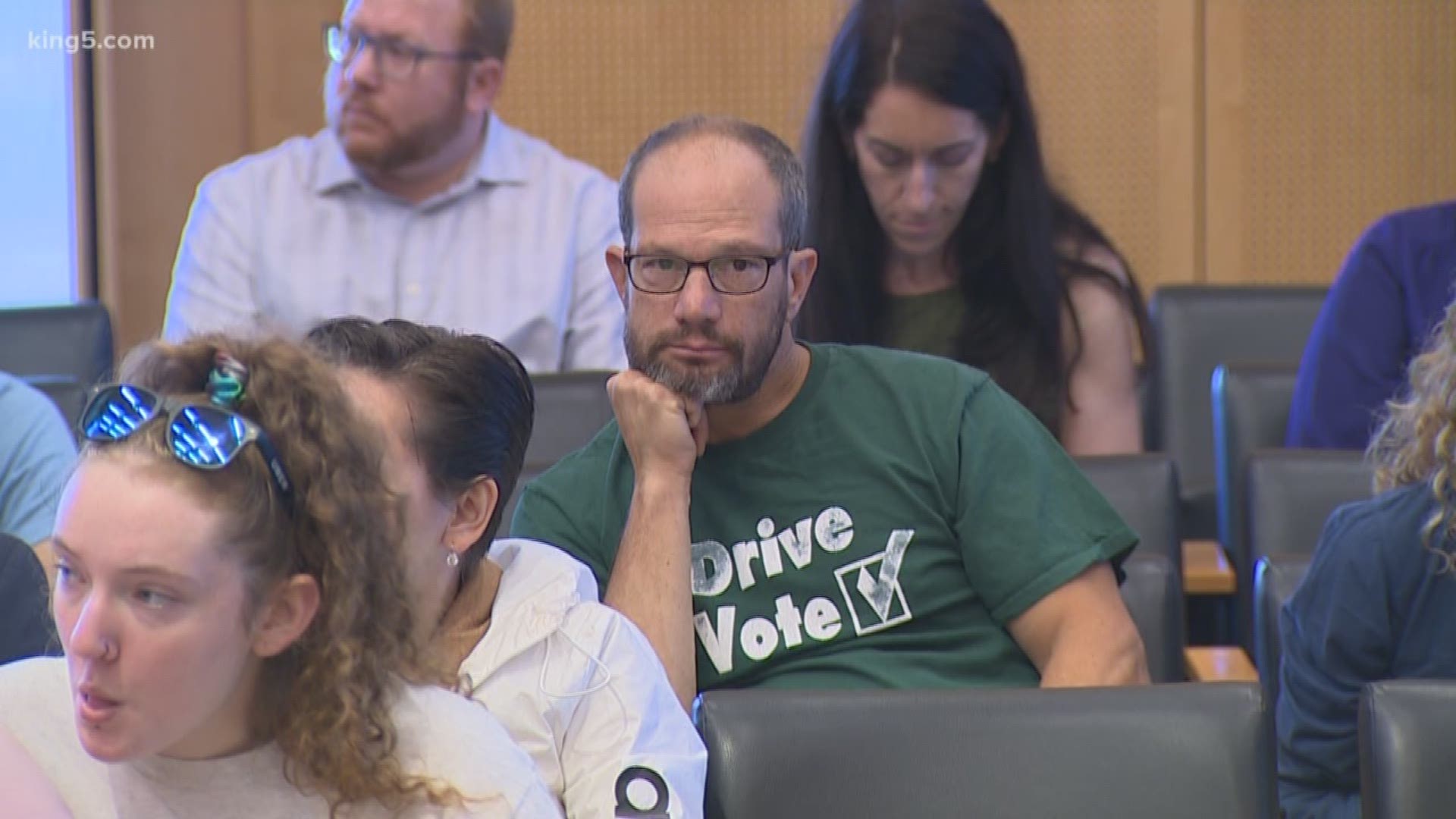SEATTLE — The Seattle City Council unanimously approved Mayor Jenny Durkan's "Fare Share" plan, which mandates that Uber and Lyft drivers be paid a minimum wage.
The Fare Share plan would require companies to not only pay minimum wage to drivers operating in Seattle, but also provide compensation for expenses incurred that benefit Uber and Lyft.
The city will commission an independent study to evaluate average hourly work and expenses for drivers as well as costs to drivers not currently included such as paid sick and safe time, worker’s compensation, and unemployment.
“We are very excited. We are very happy for this,” said Lata Ahmed, an Uber driver. “We have more than 36,000 drivers here in Seattle and all of these drivers-- they need a living wage."
Durkan said the plan would allow for the funding of housing and transit projects.
Right now, Uber and Lyft pay an existing city fee of $0.24 per ride to fund wheelchair accessible taxis and regulation of the industry. The Fare Share plan will impose an additional $0.51 per ride charge on Uber and Lyft that would allow the City to invest more than $52 million for housing near transit, $56 million to fully fund the Center City Connector streetcar.
"It is worrisome,” said Babs Kanteh, a Lyft driver who is concerned that the tax will make rideshares less affordable. "What we are against is putting more money on the rides. Pretty soon people are going to try maybe bicycles or maybe walk a little longer and try to avoid us. Somebody is going to lose. It will be us and the rideshare."
Uber and Lyft echoed similar sentiments. Both agencies said they support a minimum wage for their drivers, but thought the additional ride charge was unnecessary.
“Seattle’s new tax will most impact those who rely on rideshare as an affordable and reliable transportation option, as well as the thousands of drivers who earn income from rideshare. We do support the creation of a guaranteed minimum earnings standard for drivers, but tripling the rideshare tax isn’t necessary to make that happen. Looking forward, any plan to implement an earnings standard should be based on broad input from Seattle’s entire rideshare driver community," said Nathan Hambley, regional Uber spokesperson.
In a statement, Lyft said: "Lyft supports a minimum driver earnings, but we are disappointed in the Council's decision to implement a 200 percent tax increase on all rideshare rides. An additional regressive tax directly hurts those who rely on the affordability of rideshare the most. Very little of the money actually goes towards benefitting drivers, with the vast majority of it instead being used to plug a massive hole in the city's budget. If the City was serious about helping riders and drivers, they wouldn't burden them with another regressive tax, pure and simple."
The plan also calls for the establishment of a Driver Resolution Center, a $17.75 million project. The resolution center will provide drivers with support via arbitration and appeals for anyone who claims they were unfairly deactivated by Uber or Lyft. It will also offer outreach and educational services for drivers who are immigrants and refugees.
However, details were limited as to how and where that office would be created, and how exactly it would be staffed
"Our Fare Share plan invests in first-in-the-nation protections for drivers, more housing near transit, and transit projects that will help keep Seattle moving. It is the right thing to do, and I applaud the City Council for moving quickly to ensure that more drivers can afford to live near where they work, and everyone, regardless of income or ability level, has access to high-quality transit," Durkan said in a statement.
The Fare Share plan will go into effect on July 1, 2020.


